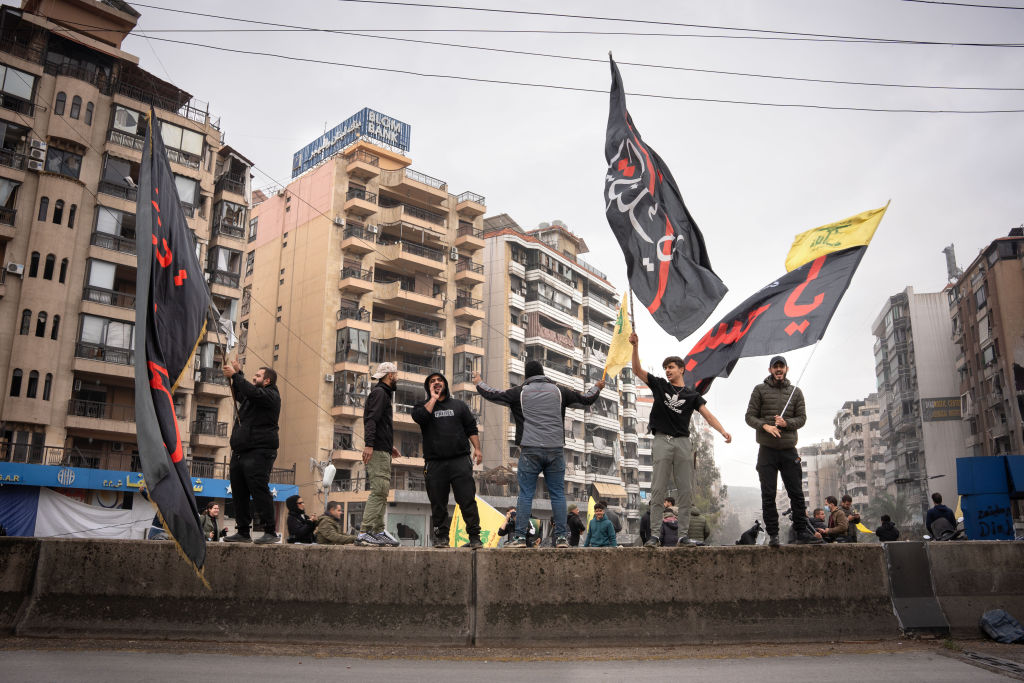
People in both countries began returning to homes in the border area shattered by 14 months of fighting.
The agreement, a rare diplomatic feat in a region racked by conflict, ended the deadliest confrontation between Israel and the Iran-backed militant group in years. But Israel is still fighting its other arch foe, the Palestinian militant group Hamas, in the Gaza Strip.
Cars and vans piled high with mattresses, suitcases and even furniture streamed through the heavily bombed Lebanese port city of Tyre heading south, carrying some of the roughly 1.4 million people believed to have been uprooted by the conflict.
In the first statement by Hezbollah's operations centre since the truce was announced, the group made no direct mention of the ceasefire and vowed to continue its resistance.
Hezbollah said its fighters "remain fully equipped to deal with the aspirations and assaults of the Israeli enemy".
Its forces will monitor Israel's withdrawal from Lebanon "with their hands on the trigger".
The group has been weakened by casualties and the killing of its leader Sayyed Hassan Nasrallah by Israel.
The ceasefire aims to end a conflict across the Israeli-Lebanese border that has killed at least 3768 people in Lebanon since it was ignited by the Gaza war last year, according to the Lebanese health ministry.
UN Secretary-General Antonio Guterres said the ceasefire was "the first ray of hope" in months of Middle East conflict.
Iranian Foreign Minister Abbas Araqchi said Iran welcomed the truce and hoped it would be permanent.
In Lebanon, some cars flew national flags, others honked, and one woman could be seen flashing the victory sign with her fingers as people started to return to homes they had fled.
In the southern Lebanese village of Zibqin, Asya Atwi returned to her ruined home with her husband and daughter.
"The important thing is that we’re back, against Israel’s will and against the will of all the enemies," she said. "We came back to our hometown, and we will sleep on the rubble."
Zahi Hijazi, 67, took advantage of the truce to visit his damaged apartment in Beirut's southern suburbs, a Hezbollah stronghold that Israel bombed heavily.
"Our lifetime’s savings ... All this destruction," he said.
'TOTAL DESTRUCTION'
Israel has said its military aim in Lebanon was to ensure the safe return of about 60,000 Israelis who fled communities along the northern border when Hezbollah started firing rockets at them in support of Hamas in Gaza in October 2023.
Asor Gal’it, returning after 14 months to the Israeli border town of Metula, said today she heard some shots when she arrived home.
"We were a little afraid, but we trust our army and let's see what happens. Let's hope for the best," Gal'it said.
In another Israeli border community, Amichay Biton surveyed the ruins of his parents' home.
"There's nothing. Total destruction, that's what there is," he said.
Lebanon's army, entrusted with ensuring the ceasefire lasts, said it had begun deploying additional troops south of the Litani River into a region heavily bombarded by Israel. The river meets the sea about 30km north of the Israeli border.
Israel also struck eastern cities and towns and the southern suburbs of Beirut, and Israeli troops pushed around 6km into Lebanon in ground incursions launched in September.
Under the ceasefire terms, Israeli forces can remain in Lebanon for 60 days. Israeli Prime Minister Benjamin Netanyahu said he had instructed the military not to allow residents back to villages near the border, after four Hezbollah operatives were detained in the area.
The Lebanese army urged returning residents not to approach areas where Israeli forces were present for their own safety.
Israeli Chief of the General Staff Herzi Halevi said Israel's enforcement of the ceasefire would be very determined.
"Hezbollah operatives who approach our troops, the border area, and the villages within the area we have marked will be struck ... we are preparing, getting ready for the possibility that this (ceasefire) approach won't succeed," he said.
GAZANS FEEL ABANDONED
Diplomatic efforts will now turn to shattered Gaza, where Israel has vowed to destroy Hamas, which led the October 7, 2023, attacks on Israeli communities. However, there were no hopes of peace returning any time soon to the Palestinian enclave.
Announcing the ceasefire, US President Joe Biden spoke at the White House on Tuesday shortly after Israel's security cabinet approved the agreement in a 10-1 vote.
"This is designed to be a permanent cessation of hostilities," Biden said. "What is left of Hezbollah and other terrorist organizations will not be allowed to threaten the security of Israel again."
He said his administration was also pushing for an elusive ceasefire in Gaza.
Hamas official Sami Abu Zuhri told Reuters that the group "appreciates" Lebanon's right to reach an agreement that protects its people, and hopes for a deal to end the Gaza war.
But many Gaza residents said they felt abandoned.
"We hope that all Arab and Western countries, and all people with merciful hearts and consciences ... implement a truce here because we are tired," said displaced Gazan Malak Abu Laila.











